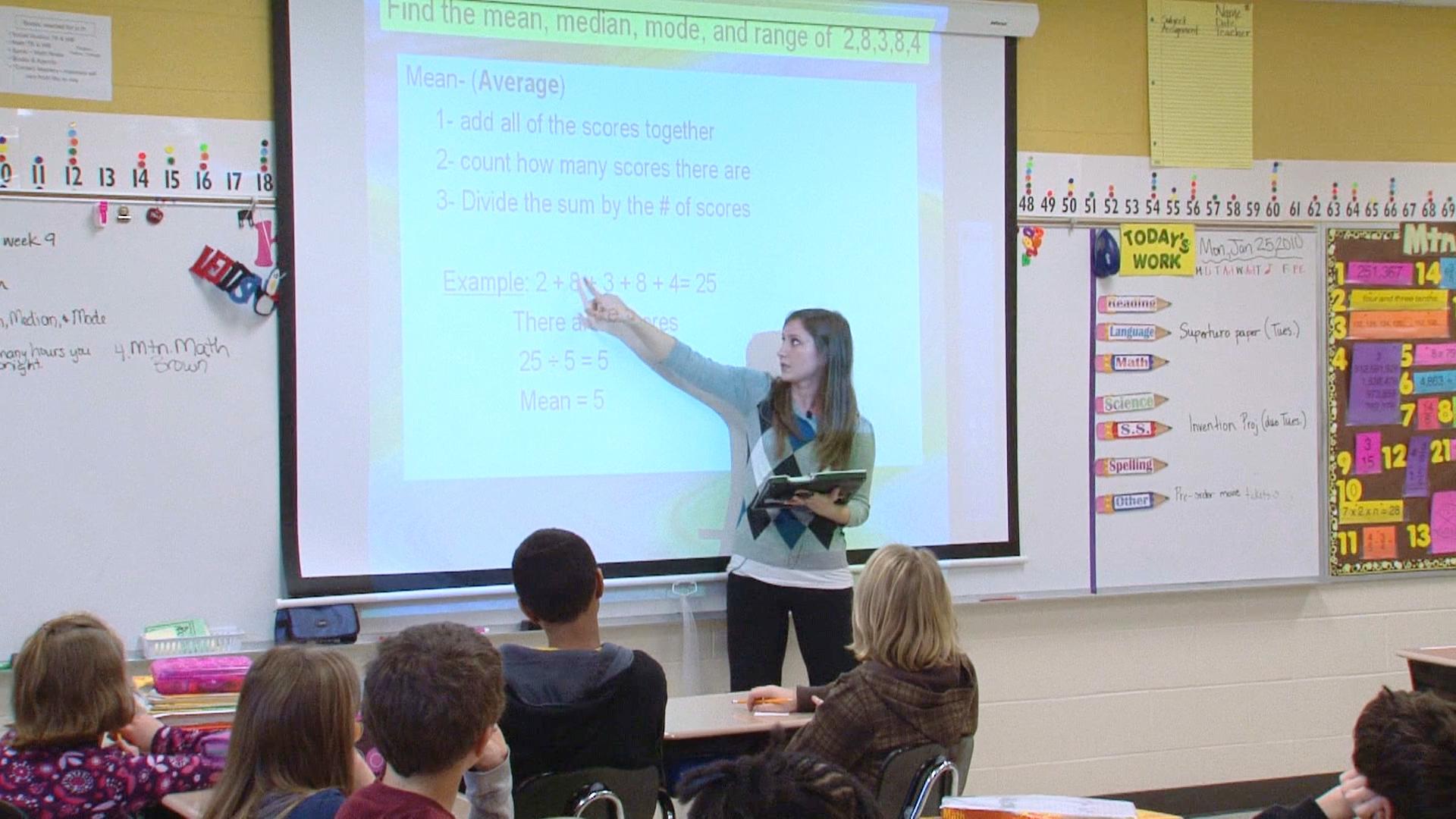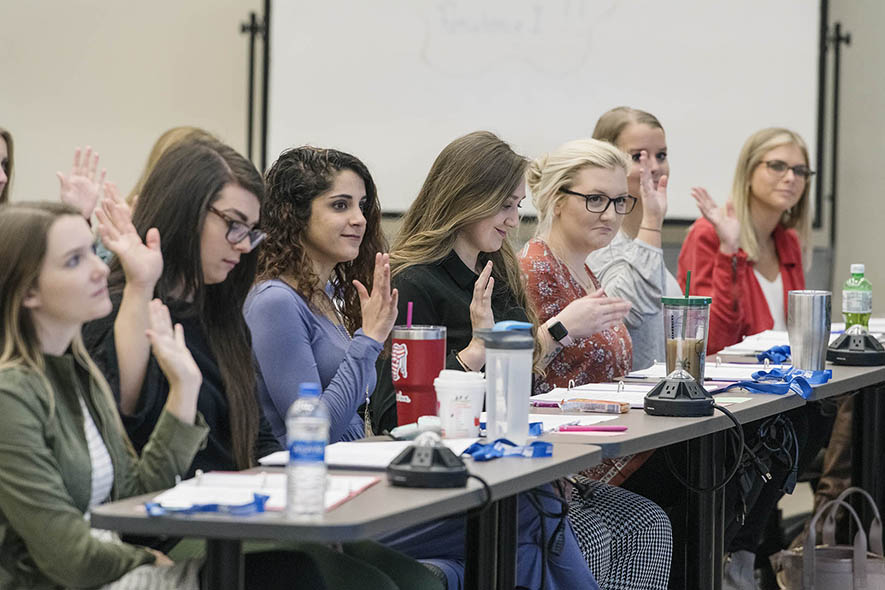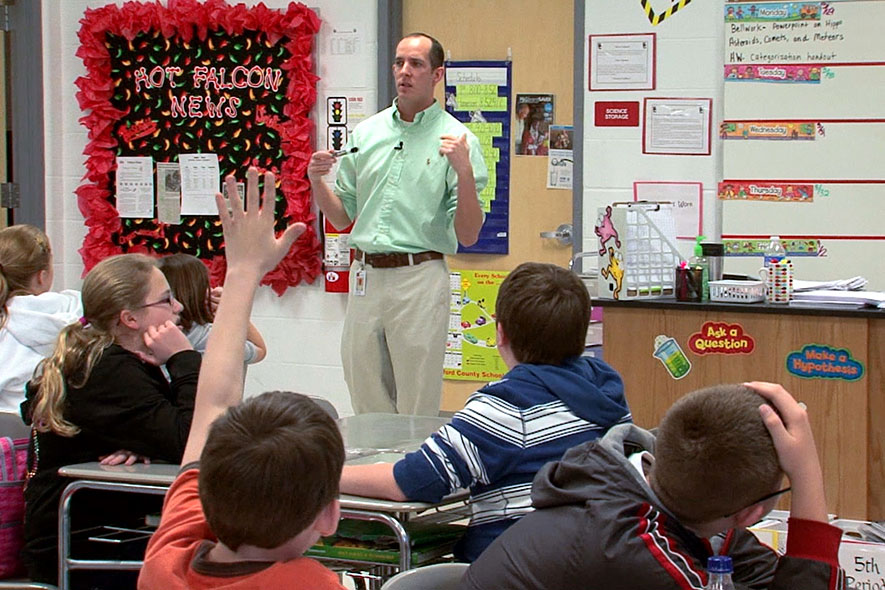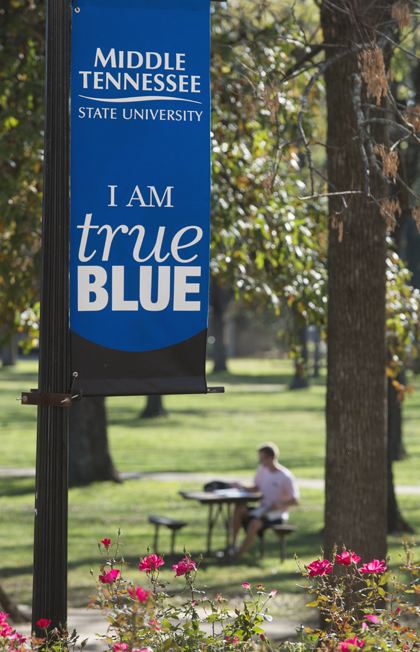
Middle Level Education
Prepare for teaching middle schoolers with Middle-Level Education program. Choose Math, Science, Social Studies, or English tracks.
Middle Level Education, B.S.
The Middle-Level Education, 6-8, program specializes in preparing future educators for teaching middle school learners. Students choose a subject focus area from a selection of content areas: English, Math, Social Studies, or Science. Students become knowledgeable and skilled in their content area while also learning instructional and assessment strategies, classroom management, and other relevant topics and practices. Students in this initial teacher licensure program develop personal and professional skills that foster a love of learning and teaching for years to come.
The major in Middle-Level Education, grades 6-8, is designed to prepare teachers for middle schools. It requires General Education, major, professional education, and residency courses. This program leads to initial teacher licensure in middle-level education (grades 6-8). This program offers four distinct tracks:
- Middle-Level Education (Grades 6-8, Math), B.S.
- Middle-Level Education (Grades 6-8, Science), B.S.
- Middle-Level Education (Grades 6-8, Social Studies), B.S.
- Middle-Level Education (Grades 6-8, English), B.S.
News Briefs

Cohort Model
Having peers and colleagues who know and support you can make learning to be a teacher more enjoyable. The Middle Level Education, 6-8, program is designed to be a cohort program in which classes are offered during specific semesters. Students who enroll in the program at similar times take most of their major courses in the Department at the same time. Therefore, they get to know one another and create a supportive network. This network allows students to learn and grow in a collaborative, safe environment that allows mistakes, encourages reflection, and promotes professional learning.

Teaching Middle School is Rewarding!
In order to ensure Middle Level Education, 6-8, students are ready to teach when they graduate, they are provided with field experiences throughout their program. These field experiences provide opportunities for students to observe and work side by side with mentor middle school teachers. Students plan and teach learning experiences while being supported by their instructors and mentor teachers. They also observe and participate in data sharing and team meetings. As they move through the program, the field experiences increase in time, rigor, and responsibility.
News Briefs
Cohort Model

Having peers and colleagues who know and support you can make learning to be a teacher more enjoyable. The Middle Level Education, 6-8, program is designed to be a cohort program in which classes are offered during specific semesters. Students who enroll in the program at similar times take most of their major courses in the Department at the same time. Therefore, they get to know one another and create a supportive network. This network allows students to learn and grow in a collaborative, safe environment that allows mistakes, encourages reflection, and promotes professional learning.
Teaching Middle School is Rewarding!

In order to ensure Middle Level Education, 6-8, students are ready to teach when they graduate, they are provided with field experiences throughout their program. These field experiences provide opportunities for students to observe and work side by side with mentor middle school teachers. Students plan and teach learning experiences while being supported by their instructors and mentor teachers. They also observe and participate in data sharing and team meetings. As they move through the program, the field experiences increase in time, rigor, and responsibility.
Related Media

Individuals trained to teach bring a desirable range of expertise and creativity to
planning and administrative roles. Graduates completing their teacher preparationat MTSU are found in public and private school classrooms throughout Tennessee andin many other states. In addition to classroom teaching, other career options include
- Agency and administrative work
- Community and foundation work
- Consulting, professional development, and teacher training
- Education policy development
- Education marketing and research
- Higher education teaching and administration
- Private tutoring
Among the employers of MTSU alumni are
- Anderson County Schools
- Bedford County Schools
- Cannon County Schools
- Carroll County Schools
- Cheatham Co Schools
- Coffee County Schools
- Collierville Christian Academy
- Crockett County Schools
- Cumberland County Schools
- DeKalb County Schools
- Dickson County Schools
- Dyer County Schools
- Fayette County Schools
- Fayetteville City Schools
- Franklin Special School District
- Giles County Schools
- Grundy County Schools
- Hamilton County Schools
- Hardeman County Schools
- Hickman County Schools
- Kids Connection
- Knox County Schools
- Lawrence County Schools
- Lebanon Special School District
- Lewis County Schools
- Lincoln County Schools
- Macon County Schools
- Madison County Schools
- Manchester City Schools
- Marion County Schools
- Marshall County Schools
- Maury County Schools
- McNairy County Schools
- Memphis and Shelby County Schools
- Metro Action Commission, Nashville
- Metropolitan Nashville Public Schools
- Middle Tennessee Christian School, Murfreesboro
- Montgomery County Schools
- Moore County Schools
- Murfreesboro City Schools
- Perry County Schools
- Providence Christian Academy, Murfreesboro
- Robertson County Schools
- Rutherford County Schools
- Sequatchie County Schools
- Sumner County Schools
- The Webb School, Bell Buckle
- Trousdale County Schools
- Tullahoma City Schools,
- Warren County Schools
- Wayne County Schools
- White County Schools
- Williamson County Schools
- Wilson County Schools



The Middle Level Education, 6-8, program specializes in preparing future educators for teaching middle school learners. Students choose a subject focus area from a selection of content areas: English, Math, Social Studies, or Science. Students become knowledgeable and skilled in their content area while also learning instructional and assessment strategies, classroom management, and other relevant topics and practices. Students in this initial teacher licensure program develop personal and professional skills that foster a love of learning and teaching for years to come.

CONTACT US

Please fill in the form below and we will contact you very soon











